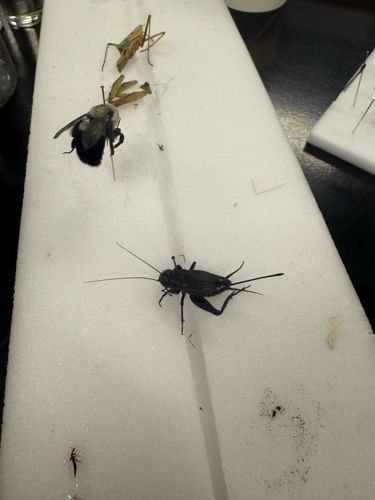Field Cricket
Scientific Name: Gryllus pennsylvanicus (or similar Gryllus species)
Order & Family: Orthoptera, Gryllidae
Size: Typically 1.5 to 3 cm (0.6 to 1.2 inches) in length.

Natural Habitat
Found in fields, meadows, grasslands, lawns, and often near human dwellings; prefers areas with dense vegetation for shelter.
Diet & Feeding
Omnivorous, feeding on a wide variety of plant material, rotting organic matter, seeds, and occasionally other small insects, including their own species.
Behavior Patterns
Nocturnal and solitary, best known for the male's characteristic chirping sound produced by stridulation (rubbing wings together) to attract mates. They can jump significant distances to escape predators. They undergo incomplete metamorphosis.
Risks & Benefits
Generally considered harmless to humans, though large indoor infestations can be a nuisance and they may damage houseplants or fabrics. In natural ecosystems, they play a role as decomposers and are a food source for many predators (birds, spiders, small mammals), contributing to the food web.
Identified on: 10/3/2025